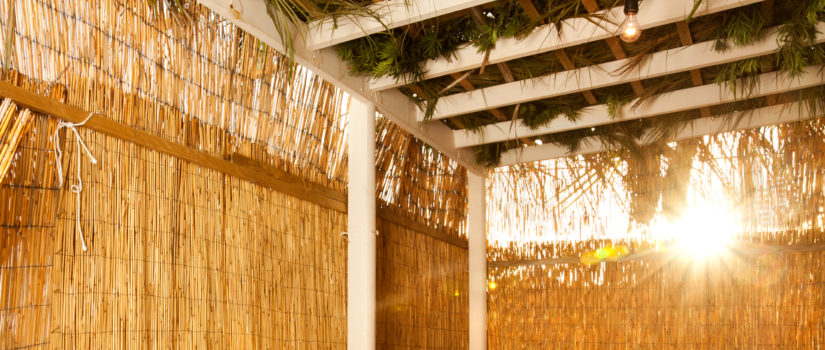Rabbi Jamie’s Corner
October 2022
I am driving down Highway 101 towards King City. It’s mid-day, it’s hot, there are workers in the fields, heads covered by t-shirts tied into protective sun-gear. Makeshift structures dot the landscape providing shade. I am reminded of the holiday of Sukkot and the temporary huts that we build as part of our observance of this holiday. Is the experience of these farmworkers, as they seek shelter from the heat of the day, so different from that of the Israelites as they toiled in Egypt and then later wandered through the desert?
Our tradition is a reservoir of stories, wisdom and ideas that provide a lens through which we can view our contemporary lives and issues. The holidays of Rosh Hashanah and Yom Kippur gave us a framework for self-reflection and redirection in the New Year. Now Sukkot approaches: a time to be grateful for all that we have, juxtaposed with the recognition that the journey through our lives is fraught with uncertainty.
Hebrew Free Loan is here to help at these times of insecurity. Like the sukkot — huts that provide temporary shelter so we can emerge refreshed and strong — Hebrew Free Loan provides interest-free loans to assist people through periods of hardship or challenge. Our loans help to bridge a stretch of unemployment, pursue vocational training, pay for medical or dental care, put down a deposit on a new apartment, and much more.
Sukkot’s roots lie in an agricultural festival (hag ha-asif) celebrating the first fruits and the harvest. Later, it grew into an experiential remembrance of the Exodus from Egypt, as we build structures symbolic of those in which the Israelites dwelt during their 40 years in the desert. Today, we take our meals in the sukkah with friends and family throughout the week. The atmosphere is celebratory, our sukkot decorated with fruits and lights. Many people hang holiday greeting cards they have received, and a warm sense of community abounds.
Sukkot gives us the opportunity to acknowledge the processes that “borei p’ri ha’adamah – bring forth fruits from the earth.” Food doesn’t just appear on the shelves of the supermarket. Real people, like those I saw in the fields, toil long and hard so that we can enjoy table grapes, berries, pomegranates, and other seasonal fruits. During the seven days of Sukkot, we experience our interconnection with nature and the environment by dwelling in temporary structures that are open on the sides, with an open roof so that we can see the stars. The impermanence of these structures mirrors the impermanence of our lives. Just as a strong wind could blow these temporary structures away, our lives can be turned upside down by events beyond our control.
In his book, “When Bad Things Happen to Good People,” Harold S. Kushner asks, “Why, if the universe was created and is governed by a God who is of a good and loving nature, there is nonetheless so much suffering and pain in it?” Kushner posits that God is benevolent, but not all-powerful to prevent evil. We can’t prevent “bad things happening to good people,” but we can respond with compassion and aid. This is where Hebrew Free Loan comes in. When life gets rough, we give people a hand, providing temporary shelter that enables them to go forward with strength and dignity.
We read in Deuteronomy 15:16 “You shall hold a festival [Sukkot] for your God seven days, in the place that will choose; for your God will bless all your crops and all your undertakings, and you shall have nothing but joy.”
May the New Year be one of blessings for you, your crops, and all your undertakings, and may you know nothing but joy.
Click here to learn more about Sukkot.
Rabbi Jamie Hyams, our Development Director, received her rabbinic ordination in 2021 from the Academy for Jewish Religion | CA. We’ve asked Rabbi Jamie to occasionally share her perspective with our community. Jamie can be reached for questions, comments, or further dialogue at jamie@hflasf.org.

